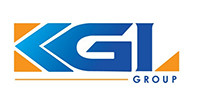PROGRAM & TOPICS – 8TH GHANA CEO SUMMIT
The theme synopsis outlines the pressing need for addressing complex challenges faced by corporations, governments, and societies, emphasizing resilience, innovation, and economic diversification. Key points include the role of AI transformation, the necessity of economic diversification for resilience, and the importance of collaborative efforts between governments and companies in shaping industrial strategies. Moreover, it underscores the transformative potential of AI across various industries and the importance of ensuring its benefits are inclusive while navigating regulatory and ethical considerations. The discussion also extends to the intersection of AI with other emerging technologies such as 5/6G, quantum computing, and biotechnology, highlighting the need for forward-thinking approaches to prepare for the future.
GAIN FRESH PERSPECTIVES AND STRATEGIC INSIGHTS ON THE LATEST BUSINESS TRENDS GLOBALLY
The GHANA CEO SUMMIT has consistently provided the ideas, perspectives and inspiration to help Ghanaian business leader take their organization to the next level.
• Access ideas, perspectives, and inspiration to elevate your organization’s trajectory.
• Engage with over 100 renowned speakers for valuable insights.
• Network with industry leaders and experts on issues relevant to global investors.
• Learn from world-class consultants and experts to navigate your company’s challenges effectively.
INSIGHTS – PLENARY, CASES, TOPICS & EXPERT PRESENTATIONS
Explore the Latest Strategies, Trends, Research and Analysis.
THE ECONOMY & EASE OF DOING BUSINESS PLENARY SESSION
The Theme for the summit is “REIGNITING BUSINESS AND ECONOMIC GROWTH: CHARTING A PATH FORWARD; Economic Diversification and Artificial Intelligence Transformation. A Private-Public Sector CEO Dialogue & High Impact-Learning”
THEME SYNOPSIS
The theme synopsis outlines the pressing need for addressing complex challenges faced by corporations, governments, and societies, emphasizing resilience, innovation, and economic diversification. Key points include the role of AI transformation, the necessity of economic diversification for resilience, and the importance of collaborative efforts between governments and companies in shaping industrial strategies. Moreover, it underscores the transformative potential of AI across various industries and the importance of ensuring its benefits are inclusive while navigating regulatory and ethical considerations. The discussion also extends to the intersection of AI with other emerging technologies such as 5/6G, quantum computing, and biotechnology, highlighting the need for forward-thinking approaches to prepare for the future.
OPENING PLENARY SESSION- A HIGH LEVEL DIALOGUE
Discussion on the theme for the Summit.
“REIGNITING BUSINESS AND ECONOMIC GROWTH: CHARTING A PATH FORWARD; Economic Diversification and Artificial Intelligence Transformation. A Private-Public Sector CEO Dialogue & High Impact- Learning.”
PRESIDENTIAL PLENARY SESSION- A HIGH LEVEL DIALOGUE
The 8th Ghana CEO Summit & Expo will feature a Presidential Plenary Session where current and former Presidents of Ghana will discuss key topics such as resetting the economic agenda, private sector development, reigniting economic growth, and economic diversification. Key questions will focus on strategies for sustainable growth, enhancing the private sector, leveraging business leadership for innovation, and promoting economic diversification to reduce dependency on traditional sectors.
DIGITAL ECONOMY PLENARY SESSION- A HIGH LEVEL DIALOGUE
Charting a path forward: Artificial intelligence transformation as the paradigm to reignites business and economic growth.
Panel Synopsis:
The panel will explore the transformative power of artificial intelligence (AI) in catalyzing business and economic growth across industries. It will address pressing questions regarding regulatory frameworks, societal impact, and the intersection of AI with other emerging technologies like 5G/6G, quantum computing, and biotechnology. Through insightful discussions, the panel aims to chart a forward-looking path for leveraging AI to benefit both the economy and society while mitigating potential risks. Two additional questions for consideration: How can organizations effectively integrate AI into their existing operations? What strategies can be employed to ensure equitable access to AI-driven opportunities across different sectors of society?
KEYNOTE AND SUMMIT SPOTLIGHT CONVERSATIONS
- “The Global Economy and the State of the World”
Conversations on the world economy, cascading to Africa and Ghana.
- “Charting a Path Forward: Leading in the New Age AI”.
A Summit Spotlight conversation on AI Transformation to Reignites Business and Economic Growth.
Artificial Intelligence has become the driving force for the economy and society. With its presence in almost every industry, AI has the potential to transform and revolutionize the way businesses operate. To fully realize the potential of AI, we need to rethink how we prepare for the future.
One of the key questions we need to ask ourselves is how we can use AI to benefit everyone. Furthermore, we need to consider how the divergent regulatory landscape is balancing innovation with societal risks. Additionally, we need to ponder on how AI will interface with other transformative technologies such as 5/6G, quantum computing, and biotechnology.
Join the conversation on the future of AI and how it will shape the economy and society
CEO BUSINESS CASE PLENARY SESSION- A HIGH-LEVEL DIALOGUE
CEO Business Case: Radically Transforming your Business and becoming an African Multinational Company.
The CEO Business Case plenary session at the 8th Ghana CEO Summit focuses on strategies for transforming businesses into African multinational companies. Accomplished CEOs will share their experiences of expanding across African countries, addressing cultural, human, and logistical challenges. Two key questions that emerge are: How do CEOs navigate cultural diversity for successful expansion, and what innovative approaches do they use to overcome logistical hurdles?
STATE-OWNED COMPANIES PLENARY SESSION- A HIGH LEVEL DIALOGUE
Reigniting Business and Economic Growth: Charting a Path Forward; Transforming State-owned Enterprises through Economic Diversification and AI transformation.
Fostering a High-level Public-Private Sector Dialogue.
The upcoming State-Owned Companies Plenary Session at the 8th Ghana CEO Summit will focus on revitalizing state-owned enterprises (SOEs) to drive economic growth. Despite challenges such as poor management and unprofitability, success stories like BOST, VRA, DVLA, and NLA highlight the potential for improvement. Discussion points will include interventions to make SOEs profitable, recapitalization strategies, and balancing social and business roles. The session aims to foster a high-level dialogue on transforming SOEs through economic diversification and AI transformation.
INDUSTRY OUTLOOK | AfCFTA AND MANUFACTURING:
The 8th Ghana CEO Summit will delve into CEO leadership in manufacturing within the African Continental Free Trade Area (AfCFTA), addressing opportunities, challenges, strategies, and policy insights. Attendees will understand AfCFTA’s impact on Ghana’s manufacturing and the crucial role of CEOs in navigating this landscape. Key questions include identifying opportunities for local manufacturers within AfCFTA and assessing government policies to support sectoral growth.
CEO SURVEY: Doing business in Ghana, a survey of CEOs.
Ghana CEO Summit presents the findings of a survey of CEOs from various sectors of the economy. It examines their views of the economy, prospects for revenue growth and the key opportunities and challenges facing businesses today.
CEO TALK
The CEO Talk Panel explores strategies for African companies to achieve billion-dollar revenues, focusing on winning value propositions, strategic alliances, and securing marquee customers. Additionally, it discusses the role of national backing and industrial policy in supporting growth, and offers insights for companies with global ambitions. The panel raises questions about aligning performance metrics with growth strategies and prioritizing key indicators for sustained expansion.
LEADER’S VOICE | GUEST OF HONOR
Renowned political figures will engage in discussions with a leading journalist, exploring new avenues for Africa/Ghana’s growth, and addressing key issues including world trade, cost of living crises, inflation, crisis management, ease of doing business, corruption index, COP27, and AfCFTA.
This site uses cookies. Find out more about cookies and how you can refuse them.


























































































